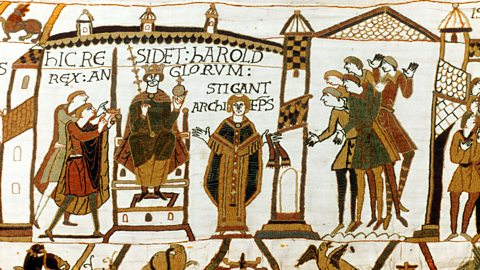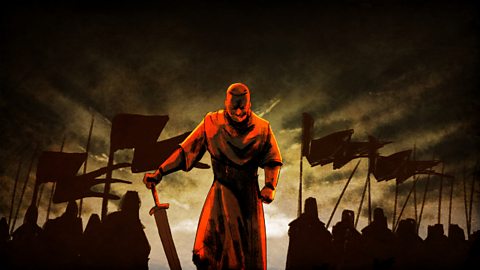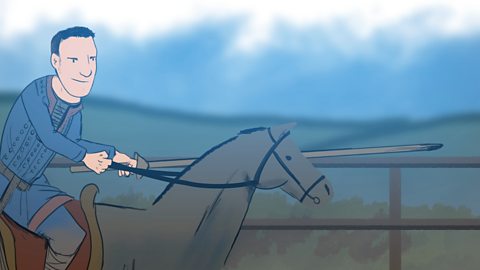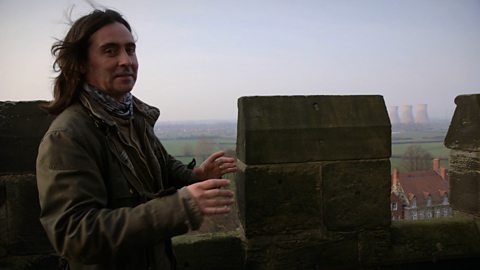Divide and conquer
On the 28 September 1066, around 7,000 soldiers from Northern France landed on the Sussex coast.
Led by William, the Duke of Normandy, they were soon to launch a battle that would become one of the most famous in all of English History ÔÇô the Battle of Hastings.
The bloody day of fighting on the 14 October proved to be a cataclysmic event in English history: a decisive turning point which transformed England forever.
The legacy of this brutal conquest - the last time England was successfully invaded ÔÇô pervades many aspects of our language and culture today.
1066: A picture of the battle
A bitter struggle for the English throne and a fatal arrow to the eye. The events of the Battle of Hastings are recorded in the Bayeux Tapestry.
Thought to have been commissioned in the 1070s by William's half brother, Bishop Odo, the Bayeux Tapestry is a 70m-long embroidered cloth and vital historical source.
Click or tap through the following selected scenes to remind yourself of key events of the battle.

Image caption, After the death of English King, Edward the Confessor, Harold Godwinson was crowned king on 6 January 1066. He was a powerful earl and member of a prominent Anglo-Saxon dynasty.
1 of 9
INTERACTIVE: Breaking with the past
Though many Anglo-Saxons initially resisted their new occupiers, the Norman conquest brought about one of the fastest, most brutal and pervasive transformations in English history.
Click or tap below to discover key areas of Norman influence.
Learn more about this topic:
The Norman Conquest and 1066. collection
Animated series exploring the key events of the battle for the throne in 1066 and how William the Conqueror secured power.

The Normans. video
An animated exploration of life in Britain following the invasion of 1066 through the eyes of a Norman family.

Vikings. collection
In this series of short films, Neil Oliver looks at how Vikings lived, traveled and traded as well as how they invaded and created settlements.
